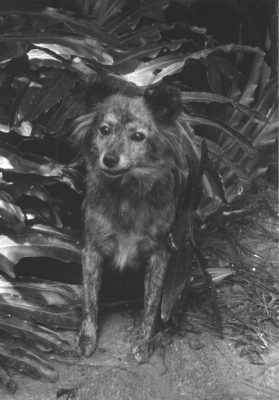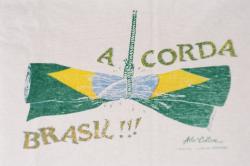Freitag, 2. April 2010
acorda
diegolego, 10:47h
... link
Donnerstag, 1. April 2010
coming soon
diegolego, 23:24h
... link
Sonntag, 28. März 2010
in concert
diegolego, 23:00h
Yesterday we finally went to see and hear the Cranberries in Berlin Columbiahalle. It was a bit disappointing and I want to briefly point out why.
The band was actually quite good and very professional, which is not a surprise considering the number of shows they give during their tour. They played most famous songs – the only one I missed was Daffodil Lament. The singer, Dolores, still performs here strange choreography. One thing I did not like too much was that already in the first song she tried to make the audience sing, which obviously did not work. The concert could have been a bit longer.
But the main problem was the audience. When we arrived, the hall was already full. We tried to get a bit closer to the stage, but the people were somehow aggressive and complained when one tried to pass them. In addition, they protested when a smaller person was behind us. I understand that they also want to see something, but from my experience the whole thing is dynamic so that the position keeps changing. But that was the problem. People did not move even when the band played famous or faster songs. I also had the impression that the people did not know the songs – at least those close to where we were standing.
Usually the band and the audience interact, when there is a good vibe, the band feels it and plays more engaged. To my feeling the audience was very passive. Maybe I had too high expectations when I went to the concert.
Nachtrag: They also did not play stars.
The band was actually quite good and very professional, which is not a surprise considering the number of shows they give during their tour. They played most famous songs – the only one I missed was Daffodil Lament. The singer, Dolores, still performs here strange choreography. One thing I did not like too much was that already in the first song she tried to make the audience sing, which obviously did not work. The concert could have been a bit longer.
But the main problem was the audience. When we arrived, the hall was already full. We tried to get a bit closer to the stage, but the people were somehow aggressive and complained when one tried to pass them. In addition, they protested when a smaller person was behind us. I understand that they also want to see something, but from my experience the whole thing is dynamic so that the position keeps changing. But that was the problem. People did not move even when the band played famous or faster songs. I also had the impression that the people did not know the songs – at least those close to where we were standing.
Usually the band and the audience interact, when there is a good vibe, the band feels it and plays more engaged. To my feeling the audience was very passive. Maybe I had too high expectations when I went to the concert.
Nachtrag: They also did not play stars.
... link
Samstag, 27. März 2010
The new chaos theory
diegolego, 08:55h
On Thursday I heard a talk about giant amoeboid cells (20.2). While growing, complex structures with a vein system emerge. The speaker analyzed the veins of such a slime mould as a network. While attending the talk I just thought, ok, in the past similar structures have been studied in terms of fractals. Currently, network science (wiki, netsci) is experiencing a similar hype as the fractals did some decades ago. This particular example indicates – and this is my point – that the matter, problem, or system is very similar, but the approach, method, or theory has changed from chaos theory to network science. Are complex networks just another scientific fashion? Sure, there are many cases where it makes sense to apply network theory, such as social networks, where there are well defined nodes and links. However, there are also many cases where this is not so clear.
Nachtrag: Was vom Fraktal-Hype übrig blieb
Nachtrag: Was vom Fraktal-Hype übrig blieb
... link
Donnerstag, 18. März 2010
Bug
diegolego, 19:52h
My experience in coding is that debugging involves three steps. First, one has to realize that something is going wrong. Second, one has to figure out what is going wrong, i.e. where and why. Third, one has to find a way to solve the problem.
I think research involves similar steps. After finding that some idea, theory, or model does not work, one next tries to understand why and ideally comes up with an approach that is more suitable for the problem.
I think research involves similar steps. After finding that some idea, theory, or model does not work, one next tries to understand why and ideally comes up with an approach that is more suitable for the problem.
... link
Samstag, 6. März 2010
Fighting Zipf
diegolego, 09:25h
Inequality is one of the major problems that society, civilization, and humankind is facing. By this I mean income and wealth being inhomogeneously distributed among people. Wealth is concentrated on very few people while the big majority is much less wealthy. It is important to mention that wealth also correlates with other factors like education and health. Uneven distribution is found on all scales, such as for the employees of a company, the inhabitants of a city, or the people of a country. Also among the countries such heterogeneity exists. Empirically, this finding was first described by Vilfredo Pareto already in the 19th century. The so called Pareto distribution is directly connected to the Gini coefficient which was designed by Corrado Gini in the beginning of the 20th century to measure the statistical dispersion of income and wealth. Zipf-law is a special case of the Pareto distribution.
To make a long story short, the point is that these kind of skewed distributions with very few large values are frequent in nature, technology, and society. They are said to be emergent. From a scientific point of view, one is still at the beginning to understand the processes leading to such inhomogeneous distributions. I would like to point out that task should not only be to understand but also to come up with mechanism to reduce or even avoid Pareto distributions in order to approach a more homogeneous and fair world.
To make a long story short, the point is that these kind of skewed distributions with very few large values are frequent in nature, technology, and society. They are said to be emergent. From a scientific point of view, one is still at the beginning to understand the processes leading to such inhomogeneous distributions. I would like to point out that task should not only be to understand but also to come up with mechanism to reduce or even avoid Pareto distributions in order to approach a more homogeneous and fair world.
... link
Dienstag, 2. März 2010
Colégio
diegolego, 13:43h

I took this picture many years ago in Manaus. It shows the Colégio Dom Bosco (official link). It took me some time to figure out which building the picture shows, but thanks to the internet I finally found out. I liked the building although the cable in the front is a bit disturbing - but that's reality.
Of course there is also a story behind this image.
... link
Montag, 1. März 2010
Knutshi
diegolego, 23:15h
My mother used to buy second quality meat and cooked it with some healthy carrots for the dogs. Once, Knut, a classmate came to visit us. We checked the fridge and he found the food. He asked if he could eat it, not knowing whom it was meant for. I confirmed, why not? Finally, he ate the dog food and it seamed he liked it. Later, my mother wondered what happend to the food. But don't worry, the dogs did not have to starve.
... link
Samstag, 27. Februar 2010
Domino
diegolego, 21:58h
At certain point Fuffi became pregnant and had puppies. The father was Schlappohr, another funny faithful street dog. We gave away most of the puppies and decided to keep one. It was grey and we called it Domino (quite elaborated name compared to Fuffi) - I don't need to mention how cute it was. Nevertheless, one morning we found it drowned in the pool. :(
... link
Donnerstag, 25. Februar 2010
Fuffi
diegolego, 10:37h

our dog in Brazil
... link
... nächste Seite
